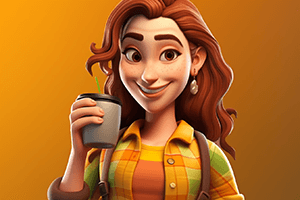
Why No Filter Coffee is the Latest Trend in Specialty Coffee Shops
Discover why specialty coffee shops are ditching the filter and embracing no filter coffee. Learn about the benefits of this new trend and why it's gaining popularity.
Why No Filter Coffee is the Latest Trend in Specialty Coffee Shops
When it comes to coffee, there are countless ways to enjoy it. From lattes to cappuccinos, the options are endless. However, in recent years, there has been a shift in the specialty coffee world towards a new trend: no filter coffee.
The Basics of No Filter Coffee
No filter coffee, also known as "unfiltered" or "full immersion" coffee, is a brewing method that involves steeping coffee grounds in hot water without using a filter. Unlike traditional drip coffee, which uses a paper or metal filter to separate the brewed coffee from the grounds, no filter coffee allows the coffee to steep directly in the water. This results in a richer, fuller-bodied cup of coffee with more nuanced flavors.
The Benefits of No Filter Coffee
There are several benefits to choosing no filter coffee over traditional drip coffee. Firstly, no filter coffee allows for more complex flavors and aromas to come through. Without a filter, the coffee oils and natural solubles are able to stay in the cup, creating a more complex and nuanced flavor profile. Additionally, no filter coffee is often brewed at a higher temperature, which can result in a stronger, bolder cup of coffee that is perfect for those who love a good caffeine kick.
Why No Filter Coffee is Becoming So Popular
So why is no filter coffee becoming such a popular trend in specialty coffee shops? One reason is that it allows for a more unique and artisanal coffee experience. Instead of just getting a standard cup of drip coffee, customers can enjoy a cup of coffee that has been carefully crafted and brewed with intention. Additionally, no filter coffee is often associated with specialty coffee shops that prioritize quality over quantity. By offering no filter coffee, these shops are able to showcase their dedication to the craft of coffee making and provide a more personalized experience for their customers.
How to Brew No Filter Coffee at Home
If you're interested in trying no filter coffee at home, there are a few things to keep in mind. Firstly, it's important to use high-quality coffee beans that have been freshly roasted. Additionally, you'll need a brewing vessel that is designed for no filter coffee, such as a French press or a coffee sock. Finally, be sure to experiment with different brewing times and water temperatures to find the perfect balance of flavor and strength.
The Bottom Line
No filter coffee may be a newer trend in the specialty coffee world, but it's quickly gaining popularity for its unique flavor profile and artisanal appeal. Whether you're a coffee connoisseur or just looking to try something new, no filter coffee is definitely worth a try.
